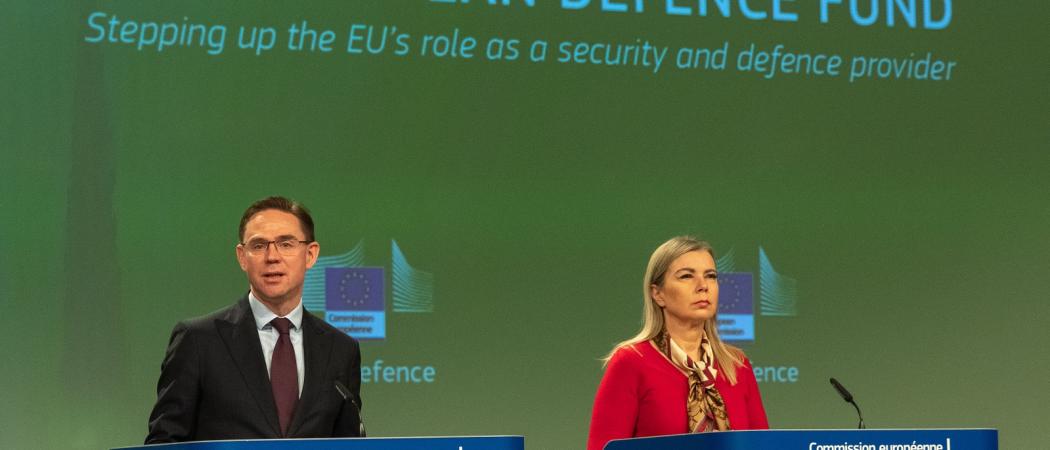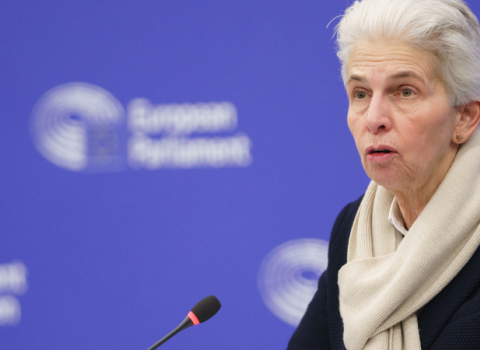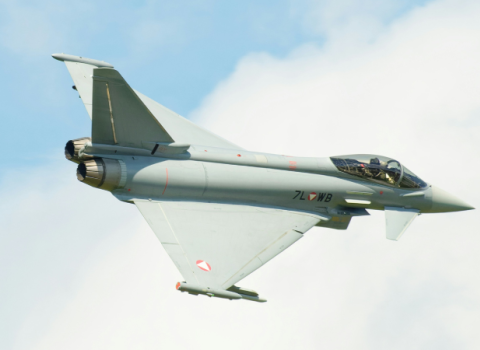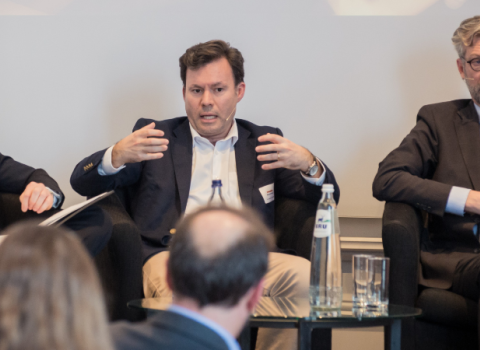The proposed €13B military technology fund 'will undermine democratic procedures in Europe and escalate the global arms race'. There should be more oversight and control over how the money is spent, activists say

EU vice president Jyrki Katainen and Elżbieta Bieńkowska, commissioner for internal market, industry, entrepreneurship and SMEs. Photo: European Commission
Peace activists in Europe are raising concerns about the level of scrutiny for the EU’s upcoming €13 billion defence fund.
The European Network Against Arms Trade (ENAAT) warns that the fund to pool research into military technology such as drones, air-to-air refuelling planes and cyber-defence systems from 2021 “undermines EU democratic procedures”, by excluding the European Parliament from exercising its veto powers over annual spending.
The arrangement, which has still to be finalised in plenary, sets “a dangerous precedent against the oversight role of the Parliament,” the group says.
“Such a compromise will [see] Parliament reduced to a rubber-stamping body,” said Ann Feltham, Parliamentary co-ordinator for Campaign Against Arms Trade, a UK lobby group.
ENAAT also states that rules governing ethical assessment of projects that apply for funding, “fall short of being transparent and credible”. The fund, which is the first significant use of the EU budget for defence, will support the development of weapons such as armed drones.
Ethical screening of research proposals will hang on prior ethical self-assessments by industry. An independent assessment will not be carried until a project has qualified as worthy of support, just before the grant is signed, the group says.
Compounding this lack of transparency, the list of independent experts assisting the European Commission in evaluation and monitoring will not be public. That will make it impossible to double-check possible conflicts of interest, says ENAAT. The Commission did not immediately respond to a request for comment.
“Presented as a response to civil society concerns, this ethical review rather looks like a farce, giving a central role to industry and using ‘national security' as an excuse for blanket secrecy” says Bram Vranken of Vredesactie, a Brussels based anti-arms group.
The Commission has established the defence fund to cut down on the cost for member states of developing the most costly military equipment alone. ENAAT warns it will “exacerbate the global arms race”.
Member states will retain control of licensing of products developed through the fund, raising concerns the EU will be unable to prevent the export of EU-funded military goods
“As the European military industry makes a large share of its sales outside Europe, subsidising arms industry R&D will inevitably increase EU arms exports to areas where there is tension or conflict,” says Wendela de Vries, co-ordinator at the Netherland’s Stop Wapenhandel.
The defence fund budget will not be finalised until member states reach agreement on the EU’s overall long-term spending plan for 2021-2027, which is not expected to happen before the end of the year.





 A unique international forum for public research organisations and companies to connect their external engagement with strategic interests around their R&D system.
A unique international forum for public research organisations and companies to connect their external engagement with strategic interests around their R&D system.